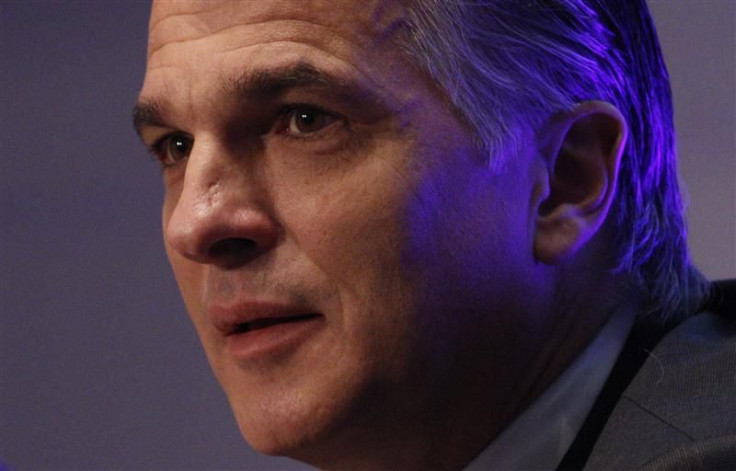UBS Strategy Has Axel Weber's Full Backing, Per Sergio Ermotti: Report

The strategy by the Swiss bank UBS to slash risky assets by almost half and pay its first dividend since the financial crisis has the full backing of Axel Weber, its newly crowned CEO Sergio Ermotti said in a Swiss newspaper on Sunday.
"Axel Weber is 100 percent behind our strategy," Ermotti, who was named permanent CEO last week, told the NZZ am Sonntag newspaper in an interview.
Ermotti took over as interim CEO after Oswald Gruebel quit in September because of the bank's $2.3 billion rogue-trading scandal.
The relationship between Ermotti and Weber, who will be proposed as chairman at the annual general meeting next May, will be closely scrutinized, as sources have said Weber was not entirely sold on Ermotti as CEO and instigated a search for outside candidates.
Although Weber did not formally take part in the discussions about the dividend payment, all topics that are made public are discussed with him, Ermotti said.
"There is no conflict: we will keep building up capital even with a dividend payout," he said.
Ermotti also said the bank was carefully examining its risk controls following its rogue-trading scandal, but that there was no such thing as a "risk-free bank."
"With 65,000 employees, we're going to have such cases now and again. We have to, however, have these risks so under control that the consequences, financially and for our reputation, remain within acceptable limits," he said.
In a separate interview with the SonntagsZeitung newspaper, outgoing Chairman Kaspar Villiger said the bank would focus on building up its capital base, but also would consider share buybacks.
"A share buyback is possible if our capital base and profitability allow it," he told the paper.
UBS announced another 400-500 job cuts on Thursday in addition to the 3,500 staffers it said in August would be cut. Villiger said no further cutbacks were planned for the time being, but it depended on developments in the markets.
"The cost pressure is very strong in general. If the markets deteriorate, we can't rule out that further cost-saving measures will be necessary."
(Reporting by Caroline Copley; Editing by Elaine Hardcastle)
© Copyright Thomson Reuters {{Year}}. All rights reserved.





















